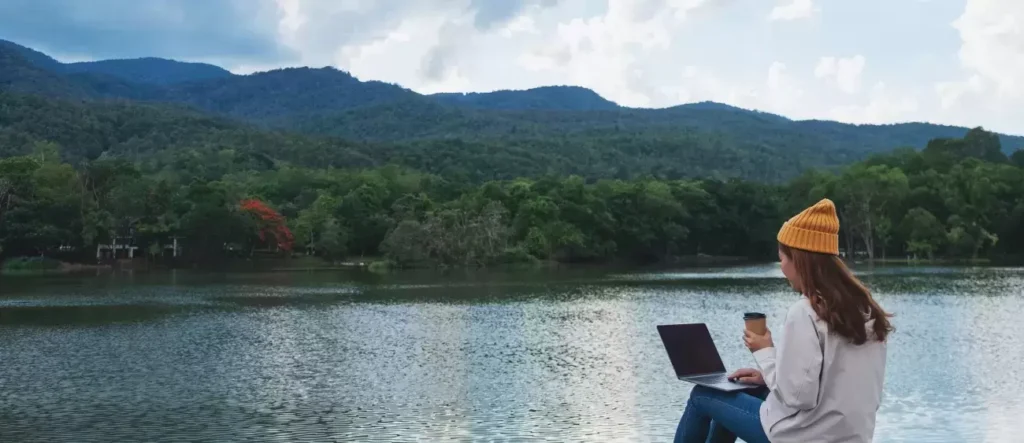
Mental Health Benefits of the Outdoors
In our busy world, where stress and anxiety can weigh heavily on us, it’s important to find ways to take care of our mental health. Did you know that spending time in nature can be a big help? Research has shown that being outdoors can have positive effects on our mental well-being. This includes things like helping us focus better, feel less stressed, improve our mood, and even reduce symptoms of mental health conditions.
Together with outdoor retailer L.L.Bean, Mental Health America (MHA) is creating awareness of how spending time in nature results in greater well-being. Our partnership has reached people through research, public education campaigns, and community-based outdoor mental health programs.
 Research
Research
In 2022-2023, MHA conducted a survey to understand how people feel connected to nature, spirituality, and others and how this affects their overall well-being, including mental health. We also asked about activities individuals regularly engage with and barriers they face.
Here’s what our research found:
- 79% of people affirmed that being outdoors helped their mental health.
- Being outdoors can make your spiritual practice, mindfulness, or sense of purpose stronger.
- Feeling connected to nature is tied to feeling connected to others and yourself.
- 68% of people wish they could spend more time outdoors.
- The main barriers to spending time outdoors were lack of social connections and time constraints.
- 46% of people say they don’t have anyone to go outdoors with, and 45% cite time constraints.
- 36% of people who want more outdoor time prefer to be in nature away from their neighborhoods.

Public education campaigns
Finding your connection to nature doesn’t always mean heading to a distant forest or a big park. It’s about making the most of what’s around you, like your own backyard or a nearby city park. Even taking a trip to find these spaces can be helpful. And, if you don’t have access to these places, you can still feel connected to nature by bringing nature inside with house plants. While studies often talk about the benefits of forests and parks, places like beaches and lakes are just as good. These “green and blue spaces” let us take a break from our busy lives and feel more connected to ourselves and others. Whether it’s green trees or blue water, being in nature helps us feel better.
Tips to increase your connection with nature
 Even small breaks help. Taking a 10-20 minute walk outside wherever it’s available and safe improves your mental health. These activities are free and not time-consuming.
Even small breaks help. Taking a 10-20 minute walk outside wherever it’s available and safe improves your mental health. These activities are free and not time-consuming.- Loneliness and isolation are real barriers to mental wellness. Try reaching out to a friend or joining an outdoor club.
- If you are in an urban area, try to get out of the city occasionally.
- Can’t get outside? Bring nature indoors with some house plants.
Learn more about ways to connect with nature:
Opening your mind to the outdoors (PDF)
Community-based programs
 In 2023 and 2024, MHA distributed grants to 10 MHA affiliates who developed innovative outdoor programming. The goals were to increase connectedness, access to the outdoors, and overcome barriers that prevented people from connecting with nature.
In 2023 and 2024, MHA distributed grants to 10 MHA affiliates who developed innovative outdoor programming. The goals were to increase connectedness, access to the outdoors, and overcome barriers that prevented people from connecting with nature.
2023 Program Highlights
8,045
hours spent outside
participants
Program benefits
- Developed a greater appreciation for nature and outdoor environments which contributed to participants’ mental well-being.
- Provided access to the outdoors for the first time to a majority of participants who previously were not aware of the opportunity and/or had limited resources.
- Improvement in depression and anxiety symptoms, and decrease in mental health hospitalizations.
- Fostered healthy eating habits and lifestyle choices.
- Increased quality of family time together and stronger bonds.
- Participants have incorporated skills learned into daily functions and family dynamics.




